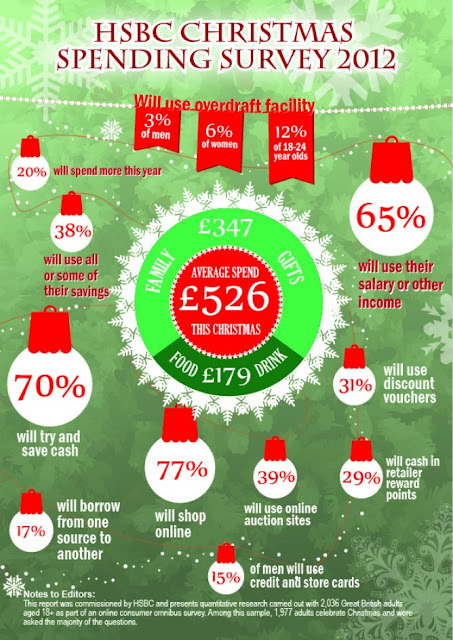 Christmas is fast approaching (only 6 days left); there are more lights going up on houses, shops are getting busier as people search for those final few presents, and there are only a few days left to post those Christmas cards, Christmas cards that are becoming less and less religious. In 2011, the Daily Mail conducted a survey and discovered that “of 6,576 cards in major supermarkets in seven locations in
Christmas is fast approaching (only 6 days left); there are more lights going up on houses, shops are getting busier as people search for those final few presents, and there are only a few days left to post those Christmas cards, Christmas cards that are becoming less and less religious. In 2011, the Daily Mail conducted a survey and discovered that “of 6,576 cards in major supermarkets in seven locations in
And it is not just Christmas cards that show the increasing decline of Christ in Christmas. The following statistics are taken from http://www.eauk.org/culture/statistics/christmas-facts-and-quotes.cfm;
In a survey conducted by ComRes on behalf of Theos in December 2010 the following results were obtained:
· 51% agreed with the statement "The birth of Jesus is irrelevant to my Christmas" whilst 46% disagreed with the statement.
· 61% agreed "Christmas is mainly for children" whilst 38% disagreed.
· 36% said they would be attending a Christmas service. 62% said they would not be going to a service, 2% were unsure.
A survey commissioned by The Children's Society in 2010 found that only 10% of adults think that it's religious meaning is the most important thing about Christmas. Only 4% of 25-34 year olds thought the religious aspect was important whilst 20% of those over 60's years feel that it is the key aspect of Christmas. 67% of all adults said spending time with family was the most important thing about Christmas.
As well as these statistics, Norwich has also been dubbed the ‘most godless city’ in England and Wales after the census showed the city has the highest proportion of people reporting ‘no religion’.
A pretty bleak picture.
But this is the world we are called to. We are called to spread the word of God, and we have the perfect opportunity at this time of year. By explaining the true meaning of Christmas, we can share the gospel. Christmas grants us opportunities to share that are unique.
Have you spoken to anyone this year about what Christmas really means? I know I haven’t. I’ve shied away from it and not taken opportunities to share. But my challenge to you and to me is to share the meaning with at least one person who does not truly understand why we celebrate Christmas.
Maybe grab a coffee with a friend, chat through Christmas plans, and invite them to a service? There’s still time!
Or if you’re less confident, maybe post a link to a youtube video on your facebook, with explanation and something from yourself about why you celebrate Christmas? The one I plan to share with some friends is at the end of this post, and there are many more at www.thenativityfactor.com
Find what works for you. But please, spread the light of Christmas amongst those who walk in darkness. Please share any stories in the comments, on twitter (@AloveAnglia1) or on facebook (/alove.anglia1)
Wishing you all a blessed Christmas.
Becky
